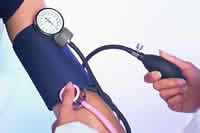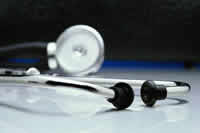Week 13 - Cells and Systems: Disorders
| Site: | MoodleHUB.ca 🍁 |
| Course: | Science 8 LearnNet |
| Book: | Week 13 - Cells and Systems: Disorders |
| Printed by: | Guest user |
| Date: | Monday, 17 November 2025, 5:41 PM |
Description
Week 13 - Cells and Systems: Disorders
1. Respiratory System Disorders
Lesson 17
Science in Action 8
Pages 161-162
Pages 161-162
ScienceFocus 8
Page 160
Page 160
Lesson 17: Respiratory System Disorders
The respiratory system is the part of your body that allows you to take in fresh, oxygen rich air that all your cells need to function well. In addition, this system allows you to breathe out the waste product carbon dioxide that your cells produce as a by product of energy production. Many conditions can interfere with this essential process. You will learn about asthma, bronchitis, and the effects of smoking and air pollution.  |
 |
|
|
© 2002 Alberta Online Consortium
|
2. Circulatory System Disorders
http://learn.argyll.epsb.ca/Science/Sci8/AOC/
Your life style can make a big difference to the health of your heart .
 Exercise 5.2: Circulatory System
Exercise 5.2: Circulatory System
Lesson 18
Science in Action 8
Pages 163
ScienceFocus 8
Pages 157
Lesson 18: Circulatory System Disorders
 |
The circulatory system is your body's transportation system that allows fresh materials and nutrients to be brought to the cells and waste products to be taken away. Any disorder in this system creates problems for the whole body. You will learn about the effects of disorders like hypertension (high blood pressure), strokes and arteriosclerosis. |
 |
Your life style can make a big difference to the health of your heart .
 |
 |
 |
|
|
© 2002 Alberta Online Consortium
|
3. Digestive System Disorders
Lesson 19
Science in Action 8
Pages 164
ScienceFocus 8
Pages 159
Lesson 19: Digestive System Disorders
The digestive system is responsible for converting the food you eat into a form useful to the cells in your body. This requires the breakdown of nutrients into their simplest form This will supply the body with energy or raw materials to be used for growth and tissue repair. Any disruptions in the digestive system will cause . Problems with cells all over the body

© 2002 Alberta Online Consortium
Conclusion
As we have seen throughout this unit the human body and all it's systems are very complex.
As we have seen throughout this unit the human body and all it's systems are very complex.
|
-Werner van Braun
"While the admission of a design for the universe ultimately raises a question of a Designer (a subject outside of science), the scientific method does not allow us to exclude data which lead to the conclusion that the universe, life and man are based on design. To be forced to believe only one conclusion -- that every living thing in the universe happened by chance -- would violate the very objectivity of science itself. Certainly there are those who argue that the universe evolved out of a random process, but what random process could produce the brain of a man or the system of the human eye?"
|
5. Unit 2 Section 4-5 Quiz
You will have two opportunities to write this section quiz. This quiz consists of 10 questions. Use the results from your 1st attempt to help you prepare for your second attempt. Your best score will be taken as your assessment mark. You have 15 minutes to complete this multiple choice quiz.

